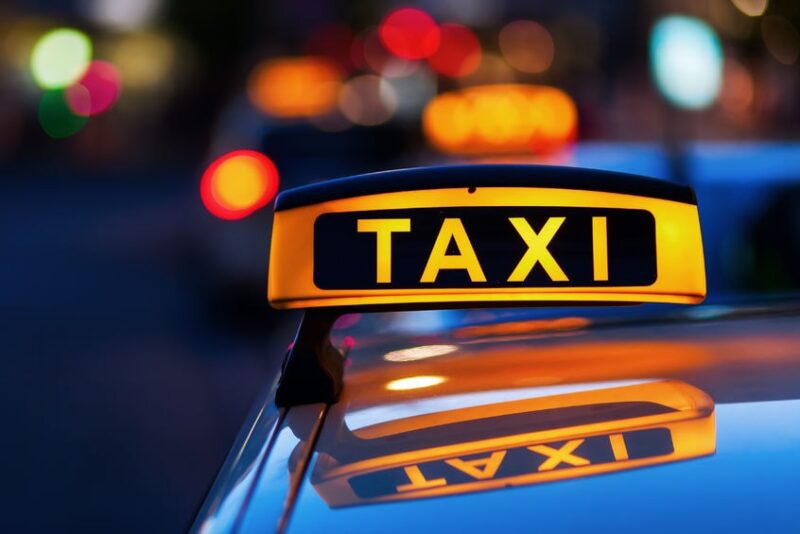Do you know when to apply for Uber insurance? But before that, let us know that choosing a rideshare driver as a profession comes with both advantages and drawbacks. On one hand, you get to work according to your suited time and earn money but on the other hand, it could bring financial catastrophe if you’re not being careful.
When you begin utilizing your personal car for business operations, your insurance coverage no longer categorizes your car as for personal use but identifies it as a commercial vehicle. This could accordingly lead you in flux because your insurance provider can refuse to cover you in the event of an accident as you don’t have the right type of insurance. Hence, this could lead you paying for the expenses that are related to both vehicle and medical. In order to avoid a situation like this, you can easily sign for Uber insurance.
WHAT IS UBER (RIDESHARE) INSURANCE AND HOW DOES IT WORK?
Contents
An Uber (rideshare) insurance policy is a specialized form of policy that narrows this coverage gap and allows the drivers to be covered during every step of the rideshare process without any stress.
What does Uber Insurance provide drivers?
First, we need to define the different insurance coverage stages a driver may find themselves involved in. There’re three stages of a driver’s average workday:
Periods:
- Period 0: Personal insurance covers this time frame because this period includes daily routine trips that have nothing to do with ridesharing.
- Period 1: Drivers are most vulnerable in this period because of the coverage gap. In this period, driver logs themselves into the app and wait for a ride request.
- Period 2: This period begins when the driver has reached the pick-up point and picked up the passenger. As soon as they pick up their first customer, they automatically are covered by the ridesharing company’s insurance policy.
Although, Uber and Lyft can provide liability and collision coverage up to $1 million, the deductible for the coverage can become quite expensive. Many times, drivers have to pay a lot of their money for the accident before the insurance kicks in. In such situations, rideshare insurance helps by usually reducing it to a more reasonable amount.
Uber Insurance Options:
Rideshare coverage is the perfect balance between personal insurance and commercial insurance. This type of insurance protects drivers and provide them with the time to complete the coverage gap. In comparison to commercial insurance premiums, this insurance costs very less.
Also, in accordance with Trusted Choice, the average commercial auto policy costs $1200-$2400 per year or higher for a passenger car. Sadly, neither rideshare coverage is available in every state nor do all the insurance companies offer it. When compared to commercial auto policy, Uber (rideshare) insurance providers charge $50-$100 extra per year for the coverage.
Uber Insurance Providers:
Review the following list to confirm if your preferred insurance company offers rideshare coverage:
Metromile:
Metromile offers insurance policies whose premiums are based on how much you actually drive and not a recurring monthly sum. You firstly have to pay on a low base rate and then afterwards, just pennies for every mile you drive. It’s a great way to save money for you and meanwhile you can still enjoy potent benefits like:
- rental reimbursement,
- low deductibles,
- emergency roadside assistance and so much more.
All-state Uber Insurance:
You can add this rideshare coverage to your current insurance plan for about $15-$30 a year.
States where All-state Uber (rideshare) insurance is available are Ohio, Arizona, Maine, Maryland, California, Colorado, Georgia, Iowa, Illinois, Indiana, Kansas, Kentucky, Utah, Washington, Washington D.C, Michigan, Nevada, Oklahoma, Rhode Island, South Carolina, Tennessee, Texas and Wisconsin.
Erie Uber Insurance:
Erie insurance has traditionally excluded coverage for taxi drivers. But, this case isn’t valid for the drivers who have Uber (rideshare) insurance. In addition to personal premiums, Erie offers Uber (rideshare) insurance as a monthly fee to the drivers that varies between $9-$15.
States where Erie Uber insurance is available are Pennsylvania, Illinois, Indiana, West Virginia, Washington D.C, Kentucky, Maryland, Ohio, Tennessee, Virginia and Wisconsin.
Farmers Uber Insurance:
Farmers Uber insurance provides drivers with Uber (rideshare) insurance. Their network is spread across more than half the United States. However, this insurance is very costly as it demands 25% more than your current rate. It’s because of the estimated increase in the personal property involved which is approximately 1.25%.
States where Framers Uber insurance is available are Oklahoma, Oregon, Arkansas, Arizona, California, Kansas, Maryland, Michigan, Colorado, Georgia, Iowa, Indiana, Illinois, Indiana, Minnesota, Missouri, Montana, Nebraska, New Jersey, Tennessee, Texas, Nevada, New Mexico, North Dakota, Ohio, Utah and Wisconsin.
Geico Uber insurance:
Geico offers rideshare coverage under the Geico Commercial plan. According to this plan, drivers are charged on average, about three times the rate of personal coverage.
States where Geico Uber (rideshare) insurance is available are Delaware, Georgia, Alabama, Arizona, Colorado, Connecticut, Maine, Maryland, Iowa, Indiana, Illinois, Nebraska, New Mexico, Indiana, Kansas, Louisiana, Minnesota, Mississippi, Missouri, South Carolina, South Dakota, North Dakota, Ohio, Oklahoma, Oregon, Pennsylvania, Rhode Island, Washington, Washington D.C, Tennessee, Texas, Virginia, Vermont, Wisconsin and Wyoming.
Metlife Uber Insurance:
According to Metlife, Uber insurance is determined by the distance driven by the driver during a given month. Due to this policy, the average monthly premium will always vary because it would depend upon the time, the drivers spend on the road.
Currently, Metlife Auto & Home insurance is available in almost every state.
Progressive Uber insurance:
Favoring Lyft, Progressive Uber (rideshare) insurance is currently only available in Texas. Under Progressive, Uber (rideshare) insurance is considered as a personal policy. Theoretically it means that insurance rates are going to remain unchanged once they know about your business operation. However, no official estimation has been established till.
State farm Uber Insurance:
In words of State farm Uber insurance, rideshare insurance is an extension to personnel policies. Because of the distinct declaration, the coverage should be moderately priced theoretically.
States where State farm Uber (rideshare) insurance is available are Georgia, Iowa, Alabama, California, Colorado, Louisiana, Maine, Minnesota, Connecticut, Delaware, Indiana, Indiana, Ohio, Oklahoma, Oregon Kentucky, Mississippi, West Virginia, Nebraska, North Dakota, Pennsylvania, Tennessee, Washington and Wisconsin.
Travelers Uber Insurance:
As defined by Travelers Uber insurance, rideshare coverage is a modified personal policy. Travelers insurance only offers insurance for rideshare drivers in CO and IL. To know more about Travelers Uber insurance, you can look for Optional coverage section or message us.
USAA Uber Insurance:
USAA Uber insurance provides coverage only to a selective group. This group include selected drivers who have served in the military before or are related to any current USAA member as a partner/child. USAA rideshare insurance adds about $6 a month to regular insurance policies.
IMPORTANCE OF SPECIAL INSURANCE
Earlier reactions:
Initially, insurance companies weren’t willing to provide insurance to rideshare drivers because of the lack of popularity and trust, Howbeit, with time, the popularity of the rideshare companies has grown. This has proved to be a great reason to the insurance companies to start placing their trust on the rideshare drivers and protect them through their insurance policies.
An experienced rideshare driver, Michael Albert was interviewed for the above reason. In the interview, he shared his story wherein when he applied for Uber and Lyft, he truthfully told his insurance agent. He wanted to be properly insured. Though, his insurance company didn’t raise any objection against his choice of profession. But, the agent explained to him in writing that his auto insurance policy won’t provide any coverage till the time he works with the rideshare company.
Coverage gap:
According to Transportation Network Companies (TNC) like Uber and Lyft, their policies won’t cover all your expenses until you’re on your way to pick up a passenger or already have a passenger in the car. This entitles that if you’re switched into driver mode in your ridesharing app and waiting for a passenger request then, your personal auto insurance policy isn’t going to cover you.
Along with it, the liability coverage provided by TNC will also be very low. This is known as the coverage gap. Therefore, it’s better to opt for rideshare insurance policy.
WHAT IS COVERED UNDER
RIDESHARE INSURANCE?
The answer is always going to be uncertain when it comes to being covered by TNC insurance when you’re waiting for ride requests. This period is also known as Period 1.
In such cases as above, TNC doesn’t offer any coverage. And if it does, then your coverage might be vastly reduced. It could then leave you vulnerable when you might meet an accident. You would find yourself stuck in paying for the costs of vehicle damages and medical expenses for all the parties involved.
Rideshare insurance policy helps to:
- eliminate the coverage gap.
- provide coverage during this open period so that if there is any accident then, you and the other party, along with your personal property is safe and have enough insurance.
- give you the option to have higher coverage limits and lower deductibles if in case, you aren’t satisfied with the coverage limits.
COST OF UBER INSURANCE
The rates of Uber insurance depends upon:
- the purchased amount of coverage,
- the type of city,
- the distance covered during the drive,
- your driving record,
- the season in which you had purchased your insurance,
- the choice of your insurance company.
Depending upon these factors, a rideshare policy can cost you $6-$20 per month. Also, even if you purchase rideshare coverage as an add-on to your existing auto insurance policy or as a new hybrid policy to replace your current coverage, it wouldn’t bring any significant increase in your premiums.
Insurance costs:
It depends upon:
- the making of the car,
- model of the car and
- year in which your car was launched.
For example: Cars who have solid safety features will always have a lower monthly premium such as Jeeps. Meanwhile, luxury car brands like Mercedes Benz are more expensive because of their increased cost of parts and repair.
- the historical statistics of the make and model of your car. This takes into consideration the probability of getting your car stolen or into an accident.
Liability-only insurance:
Insurance rates are always categorized. Liability-only insurance is a budget oriented option because it’s cheaper. However, in this policy, the customer isn’t personally covered in the case of an accident. Due to this, many drivers find themselves paying for their medical and vehicle expenses out of their own pocket.
Keeping the above in mind, as a business owner, you need to decide whether you want to pay such high amount all at once in exchange for avoiding higher monthly premiums. For some businessmen who own small businesses, would probably go bankrupt if they’ve to pay such a high cost.
Solution:
The way you could save on the cost of insurance would be to combine the insurance policies. Only a few insurance companies offer a lower rate to the customers who combine their auto insurance and homeowner’s insurance together into one monthly payment.
Search a proper balance between paying a high premium and a deductible. Something that you could be comfortable with and to stay safe and profitable. A lower monthly premium can be appeasing but if you’ve to pay $1,500 or more out of your own pocket before the insurance helps then, it could cripple you. Also, it could bring more problem if it happens at the wrong time.
Uber insurance policy always comes in handy when driving for Uber, Lyft or any other TNC. It doesn’t matter if you’ve to pay an additional monthly fee for this. Also, it’s advisable to keep the amount of your deductible saved up as it can help you to stand up o your feet again. Also, It doesn’t matter whether you’re at fault or not during an accident. Consult your insurer for more information.



